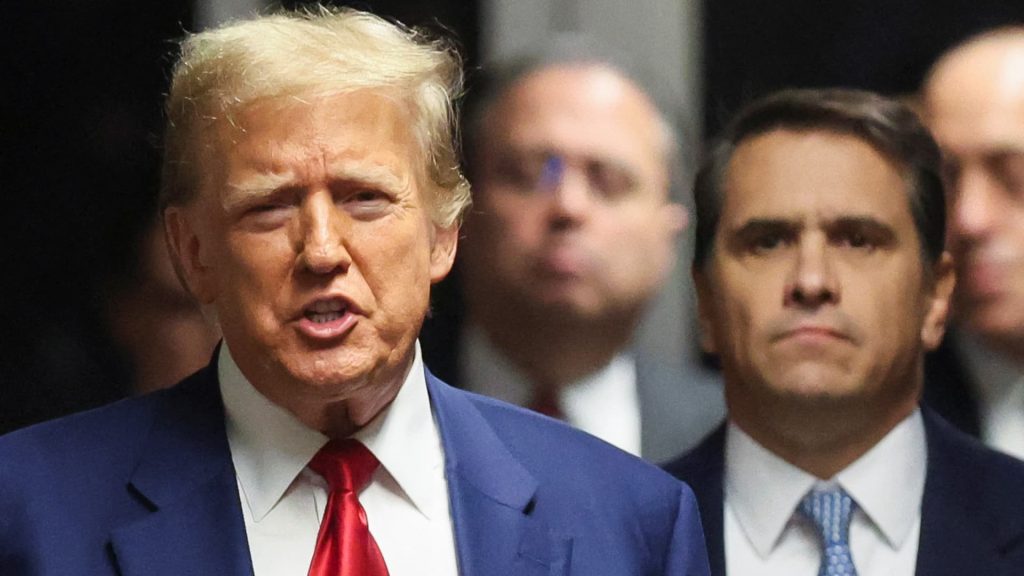In a criminal hush money trial involving Donald Trump, a judge imposed a limited gag order on the former president due to his threatening and inflammatory statements about figures involved in the case. The judge ruled that these statements risked impeding the orderly administration of the court. The gag order prohibited Trump from making public statements about likely witnesses, jurors, lawyers in the case, court staff, employees in the Manhattan District Attorney’s office, and their family members if meant to interfere with the case. However, Trump was still allowed to speak about Alvin Bragg, the district attorney prosecuting him on charges related to a hush money payment.
The gag order did not specifically forbid Trump from criticizing the judge, despite Trump referring to him as a “Trump Hater” and calling for his recusal from the case. The judge’s daughter was also brought into Trump’s social media attacks, which led Merchan to reference the nature and impact of these statements in his gag order ruling. He noted Trump’s remarks about key figures in the case, such as Michael Cohen, who is set to testify. The judge highlighted the risk of harm as the trial approached, especially given Trump’s targeting of a prosecutor in the case shortly after the trial date was set.
Trump’s attorney declined to comment on this latest gag order, which came after similar restrictions were imposed in other cases involving the former president. In a separate criminal case and a civil fraud case, Trump was already bound by gag orders limiting his public statements regarding the proceedings. Despite Trump’s attorneys arguing that restricting his speech would be unconstitutional and unlawful, the judge was unpersuaded and opted to uphold the gag order. This decision was made in response to the history of inflammatory remarks Trump had made about participants in judicial proceedings against him.
The gag order requested by the district attorney highlighted Trump’s track record of making public and inflammatory statements about jurors, witnesses, lawyers, and court staff involved in legal proceedings against him. While Trump’s attorneys indicated they would comply with the judge’s instructions to avoid prejudicing the trial process in this case, the judge deemed their proposal insufficient. This latest gag order barred Trump from commenting on key figures in the case to prevent any interference with the legal process. Despite these restrictions, Trump remained defiant in his social media attacks and vocal criticisms of those involved in the trial, leading to the imposition of the limited gag order by the judge.















